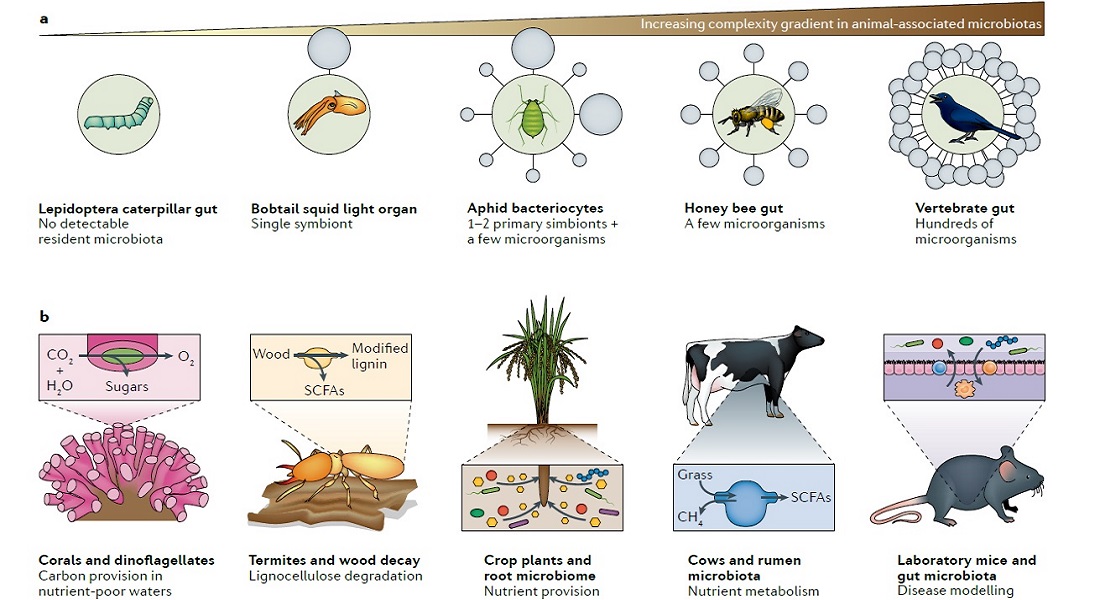Hologenomics as the key to answer and rewrite some of nature’s big questions
Studying the genetic features of a host organism alongside its associated microbes, the rapidly growing research field hologenomics, has now become so technologically viable that it should be implemented in a systematic fashion into all biological studies. Doing this, researchers from the Center of Evolutionary Hologenomics argue in Nature Reviews Genetics, will help biology answer and rewrite some of nature’s big questions.

There is no longer any reason not to consider the hologenomic approach when trying to answer key questions about nature. Novel laboratory technologies such as CRISPR-Cas9, ever-increasing availability of annotated genes and genomes, and continually expanding computational power to handle huge datasets has made the study of both host organisms and their associated microbiomes in conjunction with each other, the hologenome, into a broadly viable strategy for scientific research that should be capitalised upon.
This is among the key arguments of the review article "Disentangling Host-Microbiota Complexity Through Hologenomics," written by researchers from the University of Copenhagen’s Center for Evolutionary Hologenomics, published in Nature Reviews Genetics. The paper's authors are Associate Professors Antton Alberdi, Sandra Breum Andersen, Morten Limborg and Professors Rob Dunn and Tom Gilbert who are group leaders at the center.
“Hologenomics can be applied to address a myriad of biological questions, from evolution of life to applied issues in agriculture and health, thus enabling us to better understand the relevance of interconnection of life forms in our planet,” says lead author and Associate Professor Antton Alberdi.
Embracing increased complexity
Having reviewed more than 180 articles, the researchers argue for the cross-disciplinary feasibility of hologenomics in addressing key unanswered questions with as many nuances and complexities as possible.
“Hologenomics increases the chances to uncover hidden host-microbiota interactions, and in doing so, better understand complex biological processes and patterns,” Associate Professor Antton Alberdi says.
Making use of the hologenomic perspective helps research to account for many of the aspects that are involved in biological and evolutionary processes and sheds light on how these processes are enabled by the combined features of both the host and its associated microorganisms. The authors emphasise that hologenomics can be implemented using different study designs, model systems and techniques depending on the aims and features of the study system.
“Researchers must bear in mind that studies have to be designed carefully, acknowledging biological features of the study systems as well as the technical possibilities and limitations of employed methods, to make the most of the data,” Associate Professor Antton Alberdi explains.
To help other studies implement hologenomics, the authors identify and explain five key aspects that must be taken into consideration when designing and interpreting hologenomic studies throughout the article. Read it in Nature Review.
